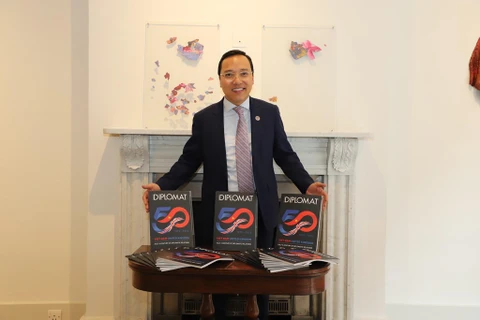
Can Tho (VNA) – Vietnamese and Irish experts gathered at a conference held in the Mekong Delta city of Can Tho on July 24, discussing an effective biosecurity strategy for Vietnam for the sustainable development of the husbandry sector.
The event was jointly held by the Ministry of Agriculture and Rural Development’s Department of Livestock Production, the Sustainable Food Systems Ireland (SFSI), and Department of Agriculture, Food and the Marine (DAFM) of the European country. It aimed at raising the awareness of the State officers, research institutes, and directors of husbandry firms of biosafety principles, and necessary practical approaches to better manage biosafety at the national level.
According to Dr. Michelle Riblet, an expert from the SFSI, biosecurity measures are carried out to prevent the introduction and spread of diseases in barns. A good implementation of the measures is a key to improving the health of animals and reducing the risk of disease outbreaks, while bringing aboout long-term economic benefits on the back of improved productivity.
Riblet suggested the Vietnamese husbandry sector pay due attention to the application and classification of biosecurity to develop a national biosecurity strategy, and study successful initiatives on antibiotic reduction in Ireland.
Although the sector has been well-known internationally for its production capacity, its development has not been sustainable yet, Deputy Director of the Department of Livestock Production Pham Kim Dang said, given the complicated developments of diseases, environmental pollution, food safety, and imported materials.
Over the past time, the sector has focused on building institutions and policies eyeing sustainable husbandry, including a proposed decree on improving husbandry efficiency that covers support for farmers in ensuring animal biosafety and disease control, he stated, adding with the World Bank’s assistance, the department developed seven pilot biosecurity models for pig husbandry corporations.
Full awareness of the significance of biosecurity from localities and farmers will help the husbandry sector develop more effectively and sustainably, he held.
Vietnam currently ranks fifth worldwide in terms of the of pig herd with more than 30 million head, sixth in pork production with a total output of nearly 5 million tonnes per year.
The country is also home to 558 million poultry, and some 8 million head of cattle./.






















